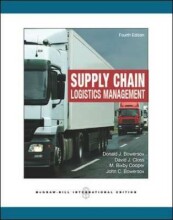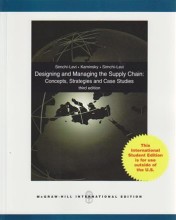21st-Century Supply Chains - Globalization
3 important questions on 21st-Century Supply Chains - Globalization
The logistics of internationalization involves four significant differences in comparison to national or even regional operations, what are these?
- Distance: of typical order - to - delivery operations is significantly longer in international as contrasted to domestic business.
- Documentation: required of business transactions is more complex due to laws and regulations of all governing bodies.
- Diversity: international logistics operations must be designed to deal with significant diversity in work practices and local operating environment.
- Demand: acommodation of cultural variations in how consumers demand products and services is essential for succesful logistical operations.
Globalization equals substantial market opportunity because of the current demand and growing world population. What are the advantages of globalization?
- Globalization gives a large sales potential, focussed on upscale consumer products with value - added service in industrialized sectors and basic products.
- Increasing operating efficiency, by sourcing raw material and components, locating manufacturing and distribution facilities in developing nations and by performing value - added operations in countries with favourable taks laws.
What are the different stages in globalization (from low to high level)?
- Import and export operations;
- Firm's establishment of local presence in foreign nations and trading areas
- Full - fledged conduct of business operations within and across international boundaries.
The question on the page originate from the summary of the following study material:
- A unique study and practice tool
- Never study anything twice again
- Get the grades you hope for
- 100% sure, 100% understanding
































